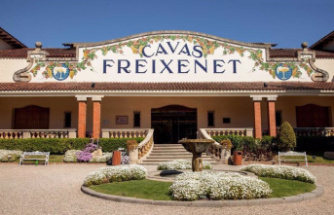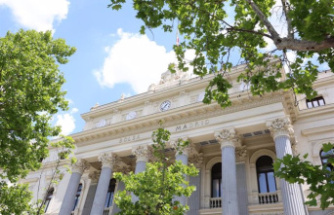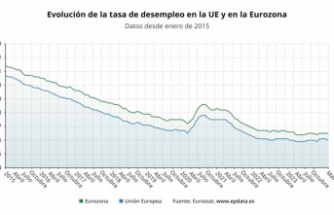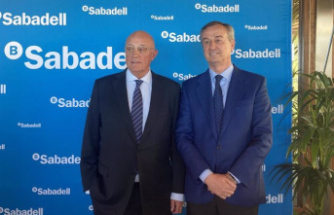The longtime Cook County judge overseeing the first-degree murder case against Chicago police Officer Jason Van Dyke has talked tough on transparency.
At a recent hearing, Judge Vincent Gaughan scolded a city attorney for seeking to keep emails related to the high-profile case out of public view, suggesting that the move might violate the mayor's pledge to be more open in the wake of the Laquan McDonald scandal.
But after his public support for an open process, Gaughan promptly disappeared into his chambers for a lengthy off-the-record discussion with the attorneys in the case. No court reporter was present to record exactly what was discussed. Instead, nearly 50 minutes later, the parties returned to the courtroom to offer only a brief public summary of what had taken place.
Such secrecy has long been the style of Gaughan, a veteran of high-profile trials with defendants such as singer R. Kelly and the Brown's Chicken massacre suspects.
While public access to criminal court proceedings is a legal bedrock of our democracy, judges hold wide discretion in how they run their courtrooms, and a range of issues — from sensitive plea negotiations to routine scheduling matters — have long been decided in private discussions with lawyers. And Gaughan has used that discretion in the Van Dyke case — Chicago's most closely watched murder case — to hash out issues entirely behind closed doors at every status hearing, sometimes for as long as 90 minutes at a time. The case is up again Friday.
Dashcam video: The shooting of Laquan McDonaldThis excerpt from video released to the public shows the most complete version of the shooting of 17-year-old Laquan McDonald. It is edited for length by the Chicago Tribune. Warning: This video contains graphic images.
This excerpt from video released to the public shows the most complete version of the shooting of 17-year-old Laquan McDonald. It is edited for length by the Chicago Tribune. Warning: This video contains graphic images.
See more videosGaughan has defended his closed-door policy to attorneys in the case by saying his foremost concern is to ensure a fair trial for Van Dyke, the first Chicago police officer in nearly 35 years to be charged with first-degree murder for an on-duty fatality.
But some veteran lawyers say the judge has gone too far, particularly for a case that exposed the city's own secrecy issues and sparked reforms on openness, including the public release of videos of police shootings within 60 days.
"In a case like this where there are major questions having to do with transparency, it seems like it's in everyone's best interest that court proceedings are out in the open as much as possible," said G. Flint Taylor, who was part of a legal team that successfully fought for the appointment of a special prosecutor to handle the Van Dyke case.
"There's a real inclination in the legal system to do things behind closed doors when, in fact, the best thing is sunshine," Taylor said. "Lawyers are guilty of it, judges are guilty of it and sometimes the press is guilty of letting it happen."
Wielding tight control
Gaughan, 75, has been a judge for 26 years, much of that time at the Leighton Criminal Court Building, Cook County's main criminal courthouse at 26th Street and California Avenue. A respected figure, the Vietnam veteran brings a military presence to his courtroom, starting each weekday at 8:30 a.m. sharp.
He declined to comment for this story.
In addition to the lengthy, off-the-record discussions with the lawyers in the Van Dyke case, Gaughan has taken further measures to keep the parties from discussing the case in public, issuing in effect a "gag" order on not only the lawyers but also anyone remotely involved with the case.
In addition, he wields tight control over public court filings by lawyers in the case, keeping them in his chambers until he decides if the circuit clerk's office can make the records public — unheard of for any other judge at the courthouse. That process can take days, even weeks, before he releases a filing.
Jason Van Dyke Nancy Stone / Chicago Tribune Jason Van Dyke, left, appears in the courtroom of Judge Vincent Gaughan in the Leighton Criminal Court Building on Aug. 4, 2016, as the judge swears in Kane County State's Attorney Joseph McMahon as a special prosecutor in the case. Jason Van Dyke, left, appears in the courtroom of Judge Vincent Gaughan in the Leighton Criminal Court Building on Aug. 4, 2016, as the judge swears in Kane County State's Attorney Joseph McMahon as a special prosecutor in the case. (Nancy Stone / Chicago Tribune)Just last week, Gaughan refused to make public a key defense filing seeking to have Van Dyke's indictment tossed, contending that releasing the document could violate his "decorum" order that sets strict limits on the public dissemination of evidence.
Gaughan has not explained publicly what he finds objectionable in the filing, but it could contain excerpts from grand jury testimony. The defense has contended in court that prosecutors and an FBI agent violated long-standing court rules by improperly presenting to the grand jury statements that police officers present at McDonald's shooting were required to give.
Lawyers told the Tribune that such pleadings are commonly made public even if they contain grand jury information, particularly in murder cases.
The judge could hear arguments Friday on whether the filing should be made public or portions blacked out.
Gaughan's penchant for keeping a tight rein on his courtroom in high-profile trials goes back at least a decade.
In advance of the first Brown's Chicken murder trial in 2007, the judge traveled to California to interview court officials involved in the Michael Jackson molestation trial two years earlier to learn how they handled the media horde and heightened public interest. He also spoke with parties involved with former Gov. George Ryan's corruption trial and former media baron Conrad Black's fraud case about the obstacles they faced. Both those trials took place in Chicago's federal courthouse downtown.
Landmark investigation says Chicago police conduct harms residents, endangers officers Jason Meisner and Annie SweeneyThe problems start at the training academy, where Chicago police recruits are shown a decades-old video teaching them outdated tactics on when and how to use deadly force.
On the street, many officers are told to keep a "code of silence" and back up the stories of officers who fire at unarmed fleeing...
The problems start at the training academy, where Chicago police recruits are shown a decades-old video teaching them outdated tactics on when and how to use deadly force.
On the street, many officers are told to keep a "code of silence" and back up the stories of officers who fire at unarmed fleeing...
(Jason Meisner and Annie Sweeney)In the process, Gaughan drew up a strict code of courtroom decorum that he used in a series of high-profile trials he has presided over, including the 2008 trial of singer R. Kelly, who was acquitted of child pornography charges, and the trials of James Degorski and Juan Luna, both convicted of murder in the 1993 massacre of seven people at a suburban Brown's Chicken restaurant.
In the lead-up to the R. Kelly trial, Gaughan cleared the courtroom on several occasions while hearing testimony from the witness stand — a step he has not taken so far in the Van Dyke case. In response, the Chicago Tribune and other news organizations filed an emergency petition seeking to make all court records public, release transcripts of the hearings and lift a gag order on attorneys. But Gaughan refused, saying attorneys must make their arguments in private to keep prospective jurors from being prejudiced by pretrial news reports.
An appellate court later upheld Gaughan's decision.
At the time, the judge denied presiding over a "star chamber" — a 15th century English court known for its secrecy — and said records of the sealed hearings eventually would be made public.
"As soon as the trial is over, the press will have access," he said.
DCFS records Nancy Stone / Chicago Tribune A stack of boxes delivered from the Department of Children and Family Services with all of Laquan McDonald's juvenile records sits in the courtroom of Judge Vincent Gaughan on Dec. 8, 2016. A stack of boxes delivered from the Department of Children and Family Services with all of Laquan McDonald's juvenile records sits in the courtroom of Judge Vincent Gaughan on Dec. 8, 2016. (Nancy Stone / Chicago Tribune)No court reporter
So far for Van Dyke's closed-door sessions, Gaughan doesn't allow a court reporter to be present, so no record of what is being said is kept. Thus, it won't be possible to ever know for sure what was discussed in the judge's chambers.
Gaughan has defended the off-the-record sessions in the Van Dyke case by saying they will help move the case to trial faster by allowing the lawyers to speak freely without fear of publicly disclosing information that could taint prospective jurors or violate laws protecting sensitive juvenile or mental health records.
But most Chicago cops facing felony charges opt for a bench trial, as Van Dyke is widely expected to do, especially in a case that has caused this much upheaval. Nearly 15 months since Van Dyke was charged, no trial date has been set, and it's unclear if it will happen this year.
Some attorneys say that Gaughan's concern for efficiency over openness falls short.
"I think this is a fundamental right that's seemingly not being respected," said Steven Mandell, a First Amendment lawyer in Chicago who has represented media companies. "In my mind, efficiency and expediency is not an adequate basis to hold hearings ... outside the eye of the public.
Top police brass defended Laquan McDonald shooting after seeing video, records show Jeremy Gorner, Dan Hinkel and Todd LightyDays after Chicago police Officer Jason Van Dyke shot Laquan McDonald 16 times, top brass watched a video of the fatal shooting at a meeting in which "everyone agreed" the shooting was justified, a lieutenant who attended the meeting said in sworn testimony.
Newly obtained documents of the city's...
Days after Chicago police Officer Jason Van Dyke shot Laquan McDonald 16 times, top brass watched a video of the fatal shooting at a meeting in which "everyone agreed" the shooting was justified, a lieutenant who attended the meeting said in sworn testimony.
Newly obtained documents of the city's...
(Jeremy Gorner, Dan Hinkel and Todd Lighty)"I think it fosters more criticism, more mistrust of the government," he said.
Jeffrey Urdangen, director of the Center for Criminal Defense at Northwestern University School of Law's Bluhm Legal Clinic, said that openness must be balanced with "the legitimate wish of a judge to manage the affairs in his courtroom."
"Though this is not an easy question, there is obvious value in transparency when considering the highly charged nature of this case," he said of the Van Dyke case.
Phillip Zisook, a Chicago attorney who specializes in First Amendment issues, said such private discussions are appropriate as long as all parties can take part, but other lawyers suggested the judge should allow a court reporter to take down what was said so transcripts of the closed-door sessions would be available after trial.
While legal experts have called for more courtroom transparency in recent years, the practice at the Leighton courthouse remains spotty. Other judges routinely hold discussions in chambers on issues ranging from scheduling to substantive matters.
The 11 officers that the city's inspector general recommended be fired Chicago Tribune staffThe Office of Inspector General recommended that 11 Chicago police officers — from rank-and-file patrol officers to command-level personnel — be fired for making false statements exaggerating the threat posed by Laquan McDonald. All the higher-ranking officers resigned or retired, leaving four...
The Office of Inspector General recommended that 11 Chicago police officers — from rank-and-file patrol officers to command-level personnel — be fired for making false statements exaggerating the threat posed by Laquan McDonald. All the higher-ranking officers resigned or retired, leaving four...
(Chicago Tribune staff)As part of an effort pushed statewide by the Illinois Supreme Court, cameras have been allowed in Cook County courtrooms for two years on a case-by-case basis, including for the first time at a bond hearing for Van Dyke.
So far, Gaughan has allowed cameras in his fifth-floor courtroom to record status hearings in Van Dyke's case, but shots of the judge are off-limits — except on one occasion when he swore in the special prosecutor — and the lengthy discussions in his chambers are off-camera. The judge has yet to rule if he will allow cameras for the trial.
Some defense lawyers say judicial secrecy in Cook County goes too far, particularly in protecting Chicago police officer disciplinary records and history of complaints. Those records frequently become an issue in cases ranging from drugs to murder but are almost never discussed in public in court.
"There's rarely a (public) debate about what a judge will allow, what is admissible and what is made public," said longtime criminal defense attorney Robert Loeb.
Behind closed doors
McDonald's shooting became a flashpoint in police-community relations after Mayor Rahm Emanuel and city officials kept the video from the public for about a year, releasing it only after a court order. The footage of Van Dyke, who is white, shooting the African-American teenager repeatedly as he lay motionless on the pavement sparked heated protests fueled by long-held grievances with the police among many black Chicagoans.
4 cops suspended for week over dashcam failures at Laquan McDonald shooting Jeremy GornerThe city Office of Inspector General, which earlier recommended the firing of 11 Chicago police officers in connection with the fatal shooting of Laquan McDonald, had proposed suspensions for four additional officers at the scene in 2014, according to its latest report.
The quarterly report from...
The city Office of Inspector General, which earlier recommended the firing of 11 Chicago police officers in connection with the fatal shooting of Laquan McDonald, had proposed suspensions for four additional officers at the scene in 2014, according to its latest report.
The quarterly report from...
(Jeremy Gorner)Last month, the U.S. Justice Department released a report that portrayed a broken Police Department in which badly trained officers have used excessive force with little threat of discipline.
In the dozen or so court hearings since Van Dyke was criminally charged on the same day as the video's release, Gaughan on each occasion has called the attorneys back to his chambers without the court reporter. Van Dyke remained in the courtroom gallery with his father.
After returning to the courtroom, Gaughan has asked the attorneys to outline on the record what was discussed, but the discussion has usually been brief and at best a summary. A terse written order of what happened at the hearing — written in the driest legal terms — was later made public, sometimes as long as a month or two later.
Those steps satisfy the established law for such off-the-record discussions, said attorney Terry Sullivan, a longtime Gaughan friend who acts as the judge's media liaison in high-profile cases.
"The courts of appeal have just said, 'Hey, so long as you put on the record what happened back there, you're entitled to have a casual meeting to determine where you're going with the case,'" said Sullivan, a legal analyst for WGN-TV. "I know it's not something that the media likes — and I might be the same if I were in your shoes — but that's the way it is."
sschmadeke@chicagotribune.com
Twitter @SteveSchmadeke
Our editors found this article on this site using Google and regenerated it for our readers.













